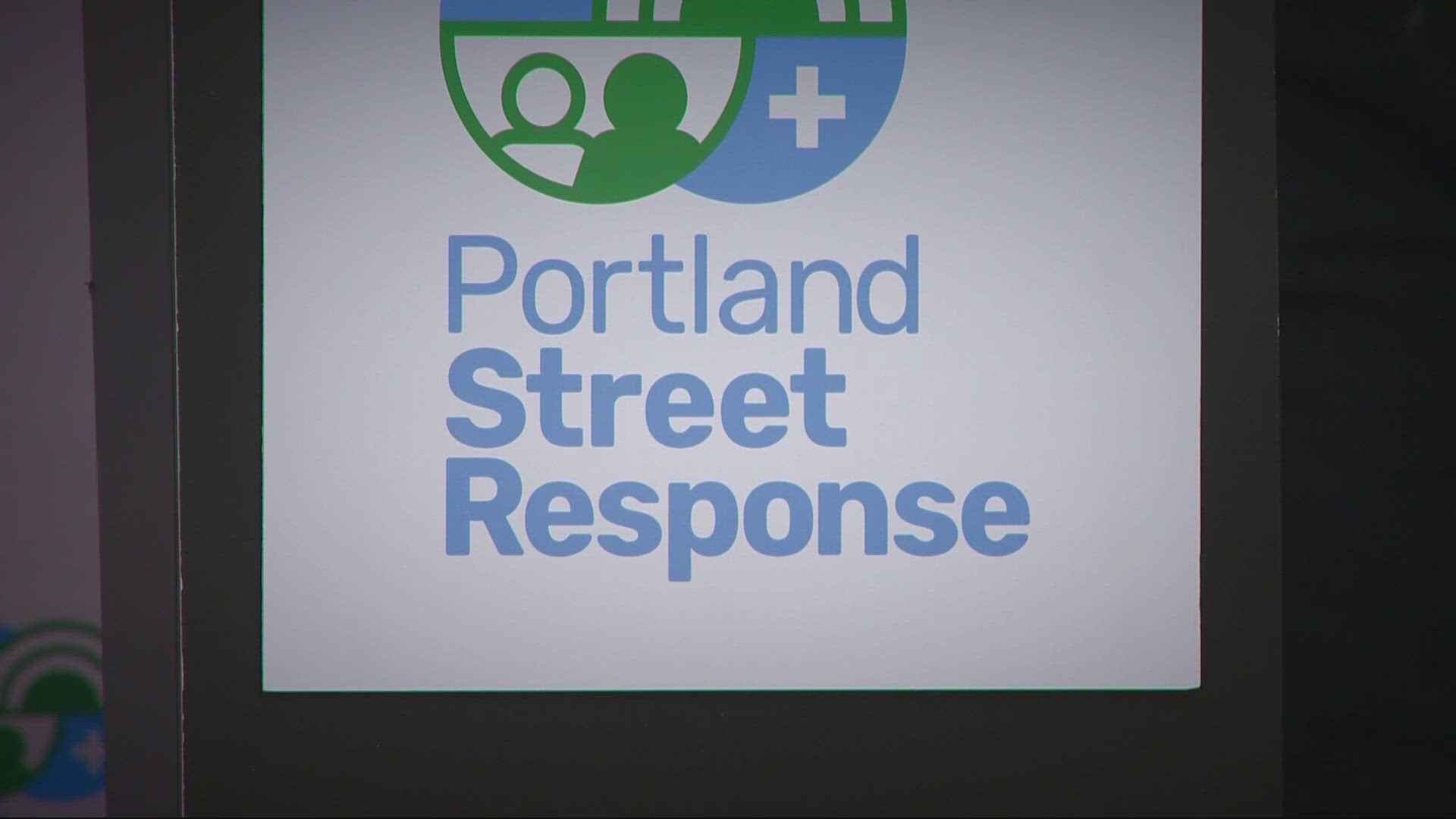PORTLAND, Ore. — This week, Portland State University's Homelessness Research & Action Collaborative released the findings from Year 2 of the Portland Street Response program, around the same time the program director announced her resignation from the position.
Her departure, plus recent developments in the program — like the directives not to hand out tents and to be present during city-ordered sweeps — call into question PSR's future role in the city.
During PSR's second year, the program expanded citywide. Program workers responded to more than 7,400 calls, compared with around 1,200 in the first year. The report show an average response time of about 30 minutes to an incident, and nearly 70% of all calls involved people living on the street.
Researchers noted some key findings: a 3.5% reduction in total calls traditionally responded to by police, and a 19% reduction in police response on non-emergency welfare checks and dispatches coded as “unwanted persons” calls. This, according to Dr. Greg Townley, remains the program's ultimate goal.
"The primary function of Portland Street Response is that first response," he said. "It's not meant to be the answer to homelessness in the city. It's not meant to be the answer to all the gaps we have in mental healthcare. It's meant to divert low level calls from other first responders to free them up to focus on higher priority issues, and make sure that community member receives the care they need."
The PSU evaluation recommended increasing hours, staff, and resources — plus renewing the focus on the original mission.
"When [staff] are asked to do things that are outside of that scope, if there is a lack of program success, it's not the result of the way the program is designed, but rather the way the program is implemented," Townley said. "This needs to be a program in which people are able to voluntarily use services in a flexible way that's designed in line with their needs.
"So when you start to talk about the team having a presence in houseless sweeps ... or when you take away the critical life saving resources in terms of foods and tents and tarps and blankets and clothing items — when you take those away, you constrain the team's ability to do the work that the program was designed to have them do."
"We're not asking Portland Street Response to do sweeps," said Commissioner Rene Gonzalez. "We are asking them to respond to people in mental distress if it arises in a sweep just like they would on any other time in the city of Portland."
Gonzalez heads up the Fire Bureau, which houses the program. He said he believes that, two years in, there is a future role for PSR, but he thinks it needs some "fine-tuning."
"It grew really fast, and so we're dealing with some of the pain points associated with that, and making sure it's focused on its core mission. But I believe strongly in the program," he said. "I mean, I think it's going through a transition, you know, and I think that it's always going to be a part of both how we respond to the homeless population and a part of a bigger public safety and social service platform in the city and county of Multnomah."
Gonzalez said as the city revamps and changes its form of government, leaders will be looking at where it may fit best — whether that's still under the Fire Bureau, or somewhere else.
Townley said he believes the program now lacks a champion at the leadership level, a necessary part in future success of PSR. Gonzalez's predecessor, Jo Ann Hardesty, used to be that champion.
Last spring, Mayor Ted Wheeler proudly announced his support for the now-citywide PSR program expanding to provide 24-hour service. That was still the plan as of earlier this year. In this current climate, however, that seems increasingly unlikely.
As for the outgoing program director, Robyn Burek, she confirmed to KGW that she's leaving next week for a position in the City Auditor's office, but declined to comment further.

